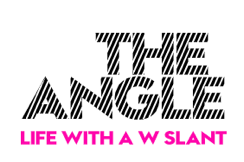A little while ago, Michelle Zauner had just finished playing a show with her project Japanese Breakfast, when she was approached about cutting a single for W Records, our recently launched music series. She was excited by the prospect of going to Seattle to record a few songs at one of our Sound Suites. But it wasn’t to be. Yet.
“They didn’t pick me,” she remembers. “It went to my friend Perfume Genius, so I couldn’t be too upset, because I love his work and I think he’s amazing.”
But it turns out she did get picked, just not quite when she was expecting. She recently traveled to the W Bali – Seminyak to record two new songs for W Records, the brand new jam “Essentially” and a sparse cover of Tears For Fears’ classic “Head Over Heels.” (“It’s a bop,” she says. “It’s such an upbeat song, we wanted to see what it looks like, stripped down like that.”)
A few weeks later, back in her Philadelphia apartment, which is strewn with framed records for both Japanese Breakfast and her previous group Little Big Leagues as well as stacks of vinyl and a sprawling bookcase, she still seems a little mystified when recalling the four days she spent in Bali, mostly working but also enjoying herself at the Woobar.
“I remember getting off of the plane and being taken to the hotel and just walking the grounds, and being like, ‘I wish I could bottle this feeling, that my art has brought me here, and what an honor to be able to go to such a nice place and to make music,'” she says. “It’s one of those things that it feels like only pop stars should do: have a retreat in Bali to write and have inspiration, so it was pretty nice.”





